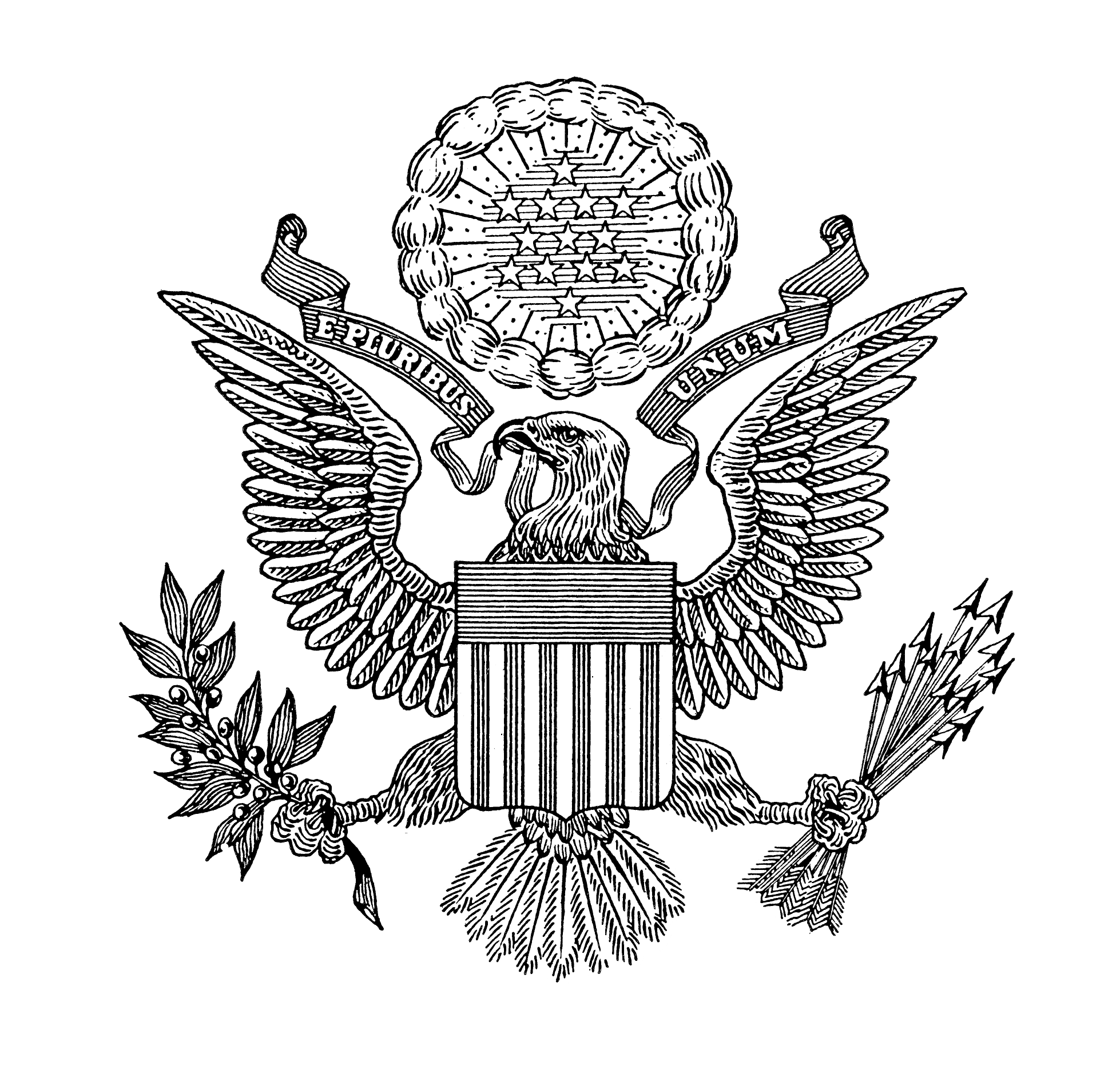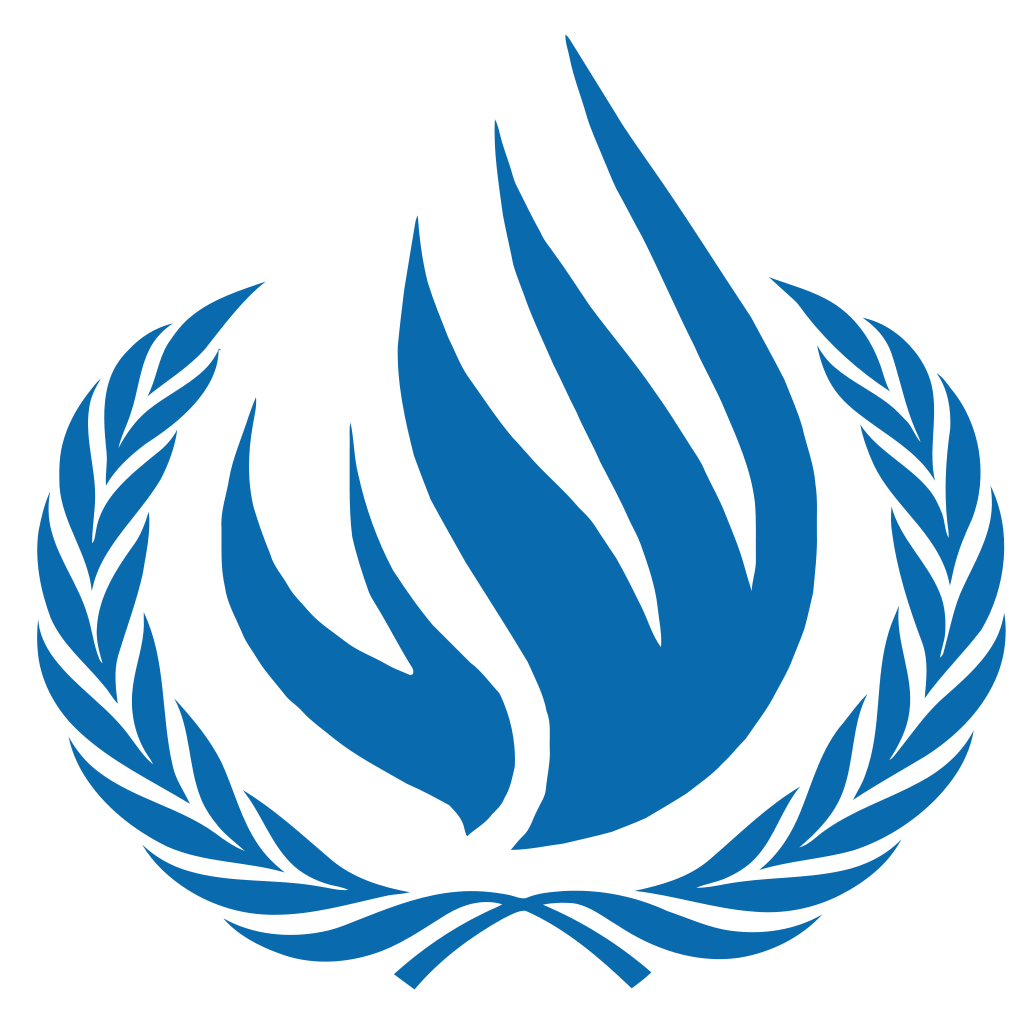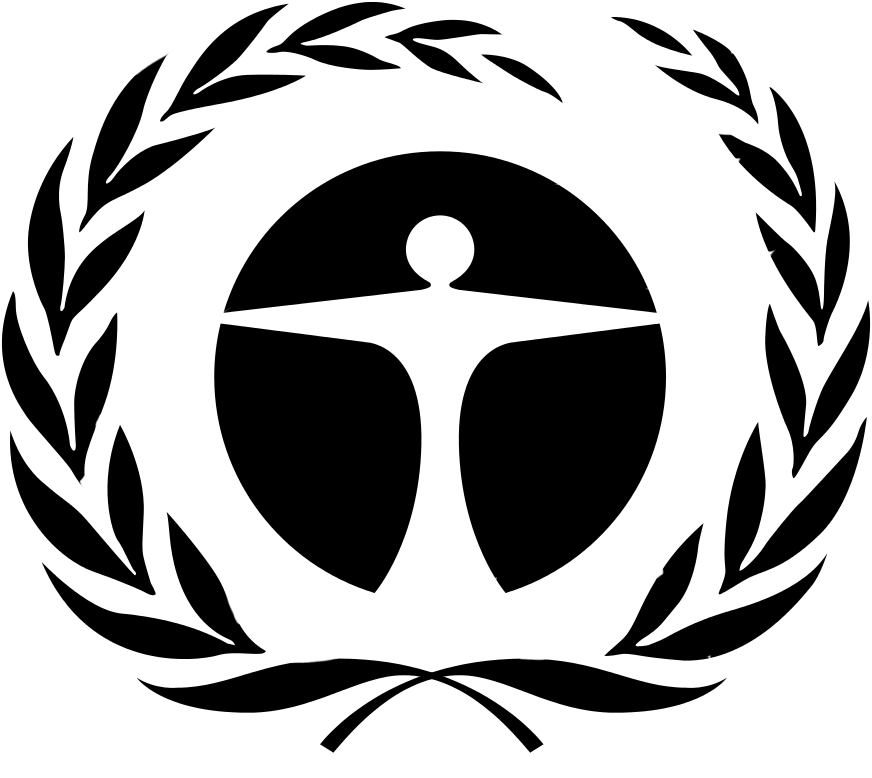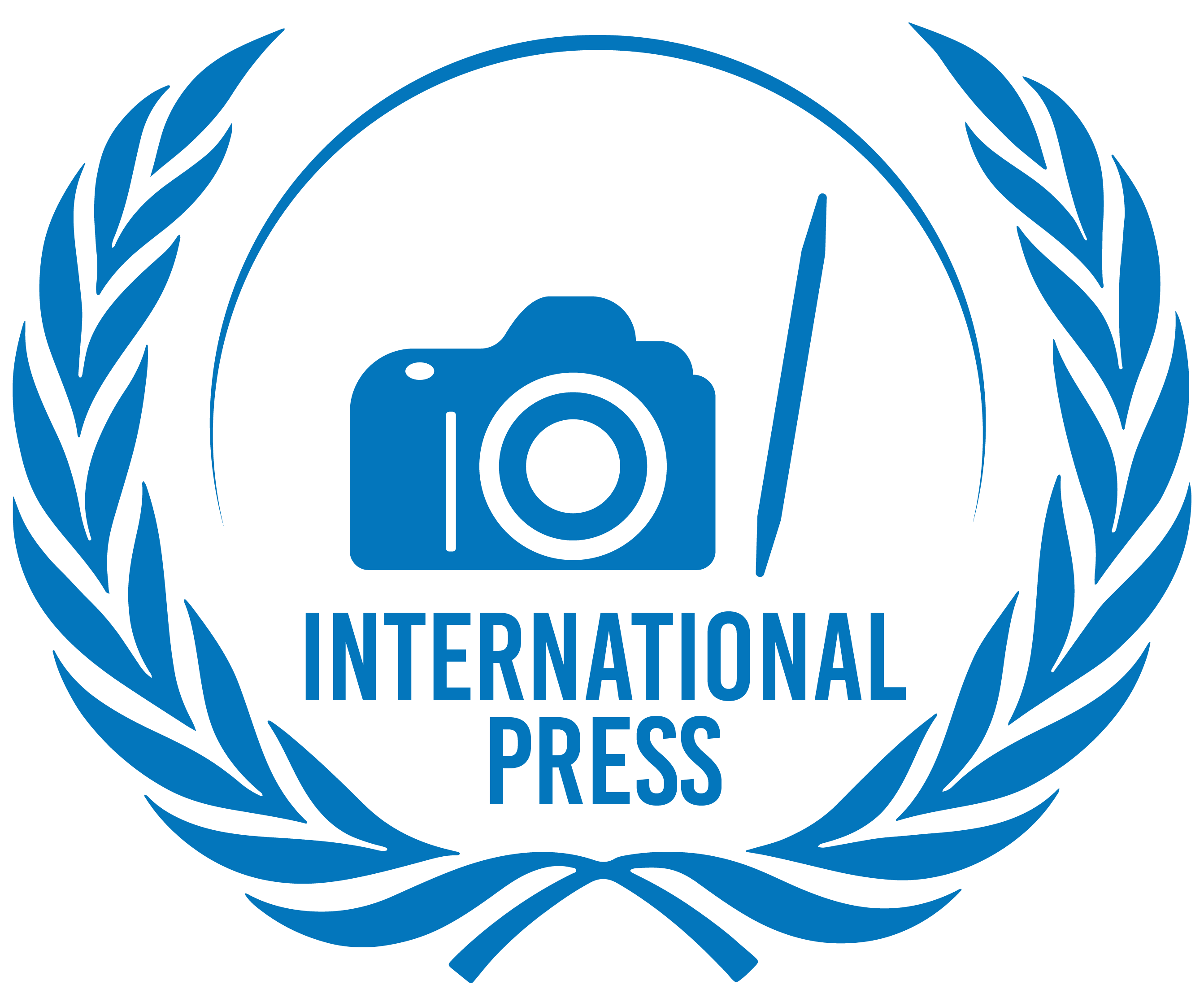THE MINISTERIAL COUNCIL OF THE HOUSE OF HABSBURG-LORRAINE
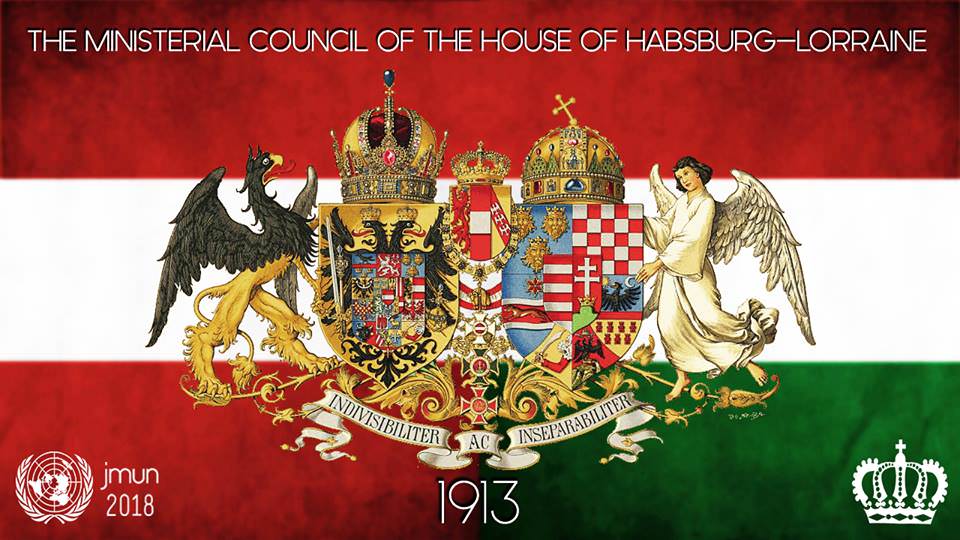
"We are more treacherous through weakness than through calculation."
-François VI de la Rochefoucauld
Austria-Hungary reached a compromise in 1867 under which, it would be a single state with Hungary having a certain level of autonomy. But, they would still be under a single monarch. Due to this agreement, Austria-Hungary was called a dual monarchy. Many European states were ruled by a royal family, a ‘House’, for example, Queen Victoria belonged to House of Windsor which still reigns over Britain. The ruling dynasty of Austria-Hungary was the House of Habsburg –Lorraine. The House of Habsburg was one of the most influential dynasties in all Europe, which occupied the throne of the Holy Roman Empire from 1438 to 1740. However, after the extinction of Austrian Branch of the House of Habsburg in 1780, the throne of Austria went into the hands of the House of Lorraine, which styled itself as the House of Habsburg-Lorraine.
Thus, the House had many influential members and was headed by the monarch of the Empire, in this case- Franz Joseph. The Ministerial Council is to the cabinet of the monarch. The committee is set in 1913, right after the second Balkan war. Delegates of this council will assume the roles of Ministers and family members of his Majesty and will advise him on various problems that plague the Empire of Austria-Hungary. But, this is not where the committee ends. Other than having an almost infinite scope, the delegate’s portfolios will give them independent powers to undertake private actions. The motive of the committee is to take the members to an era filled with chaotic politics, secret alliances and anarchy.
The world, at that time, was in a particularly uncertain status quo, with doubt and deceit acting as primary driving force behind state policies in the world politics which was filled with ulterior motives. You will, in this council, administer an ailing kingdom and your prime motive would be to act to procure its best interest, at all costs.
This ‘specialised' crisis committee is not for the easily swayed. Come to it if you think that you have what it takes: to compromise on your morals, think unconventionally and to plot deceit.
Remember, the actions of the members of this council take will change the whole course of modern history as we know it. Because your actions will or will not lead to the First World War and all the subsequent events, and would determine the future and existence of the Empire and the House of Habsburg-Lorraine.
From fight for colonies to internal strains, aggressive nationalism to strategy formation, national development to global domination, a taste of royal family affairs to the peasants and their plights, witness it all- here.
The Secretariat
THE UNITED STATES CABINET,1949

“We are fighting with all of our strength to prevent the gluttons of privilege from swallowing up the country.”
- Harry S. Truman, 33rd President of the United States of America.
Greetings ladies and gentlemen!
The wait is finally over.
The “war” is finally over.
The time has finally come!
The United States Cabinet, 1949
Agenda: Reviewing and formulating the foreign policy of the United States with reference to the contemporary system of international relations.
‘The United States Cabinet’ is the primary executive organ of the United States Government as well as the principal advisory body to the President of the United States of America. Comprising of the heads of the Federal Executive Departments of the United States, it vests immense amount of power and say in the formulation of United States’ external and domestic policies.
The World War II has ended. The United Nations has been established and the Cold War has started. With USSR rapidly advancing to become a nuclear power, the historic and dynamic year of 1949 saw Maoist revolution getting strengthened in the Republic of China, ultimately leading to the formation of the communist People’s Republic of China. Israel became the 59th member state of the United Nations in 1949 apart from several other nation-states coming into existence around the globe. Hence, it is now the responsibility of the U.S. Cabinet, under the leadership of President Harry Solomon Truman, to re-shape the foreign policy of the United States in order to ensure enduring peace in the future, keeping the interests of the American citizens in mind.
Therefore, get ready! This specialized historic committee shall test all your wit and wisdom and leave no stone unturned. It is time to use your ‘Trump Cards’, so play it safely.
See you in the White House Cabinet Room!
The Secretariat
UNITED NATIONS SECURITY COUNCIL

“There may be times when we are powerless to prevent injustice, but there must never be a time when we fail to protest.”
-Elie Wiesel
The Security Council is the chief executive organ of the UN as well as the most effective one. The agenda for the 'double-delegation' United Nations Security Council at the Jaipuria Model United Nations 2018 is:
Maritime Piracy off the Horn of Africa
On 14th March this year, Aris 13, a Comoros-flagged tanker belonging to a Greek company, was en route from the Somali capital Mogadishu to Djibouti, Somalia's northern neighbor, when it went missing off the coast near a town called Alula. This sent tremors because it was the first major pirate attack in 5 years. The fear of maritime piracy returning in that area is threatening the security and economic well being of an already volatile and weak region.
The pirates disrupt crude oil and petroleum trade through the Gulf of Aden and costs about 18 billion dollars a year. Now, it falls upon this Council to take proper preventive measures and create a sound framework for the piracy that goes about in this region.
We expect you to look beyond the horizons to solve the crisis at hand. With the spirit of 'Fiat pax fiat justitia', let us decide the future of the region.
As is always said, see you in the committee!
The Secretariat
UNITED NATIONS RED SUMMIT
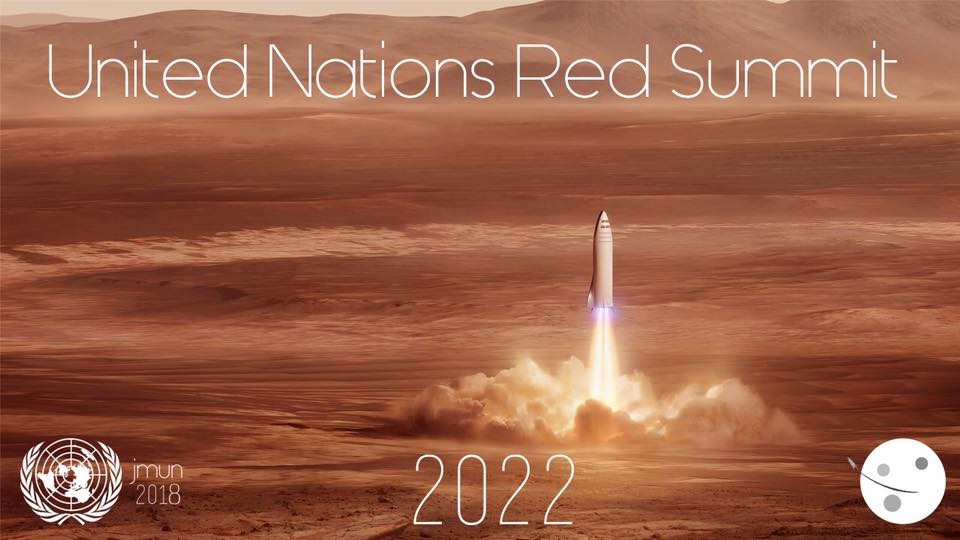
“Many discoveries are reserved for ages still to come, when memories of us mere mortals would have been effaced off this face of the Earth. Our universe is truly a sorry little affair, unless it has in it something for every age to investigate. Nature does not reveal her secrets once and for all.”
-Seneca, Natural Questions, Book 7, 1st century BC
The United Nations Red Summit is set in the year 2022.
The first ever Mars mission, way back in 1960, was when the Soviet Union had made an attempt to reach the red planet, but failed due to guidance system malfunctions. What this unmanned and unnamed mission left behind, however, was an idea. A belief for the other countries and non-governmental organizations to look upto. Since then, there have been many missions which have set out for Mars, and the information they have brought back to us is of paramount importance.
Now, when the ground beneath our feet has been all but wrecked by the very humans it sustains, it is no longer possible to atone for the sins of the past. Indeed, the only thing humans, and humanity itself, can do is learn and look forward. Two hundred and twenty five million kilometers forward, in fact. Hence, we present to you the agenda for this transnational summit:
“Roadmap for the Future Development of Mars.”
Population is increasing, resources are decreasing, and the age of adverse climate change is upon us. Humanity has forced us to look beyond the horizon, for places to host the human population. Mars is no place for the weak: arid, rocky, cold and apparently lifeless; the Red Planet offers few hospitalities. But it is our only hope.
Now, in 2022, we must consolidate all the diverse missions held so far, and give them a common agenda. With Mars One being the first mission to aim at human settlement on the Red Planet, the world wishes for its success. Ironically, we wish for someone to die on Mars….just not on impact, however.
We leave you, now, with a chilling thought. They say history repeats itself; that humanity can’t help but lack humanity. Are we truly wiser with age? Or will we destroy the Red Planet the same way we destroyed the Green one? The fate of the world may rest in the hands of the committee. Should you be brave enough to take the responsibility, come prepared with unique ideas, a firm outlook, and an ability to get creative without violating your policies. If the committee is to resemble Mars in one aspect, it’s that it also follows the survival of the fittest.
See you in the committee!
The Secretariat
LOK SABHA
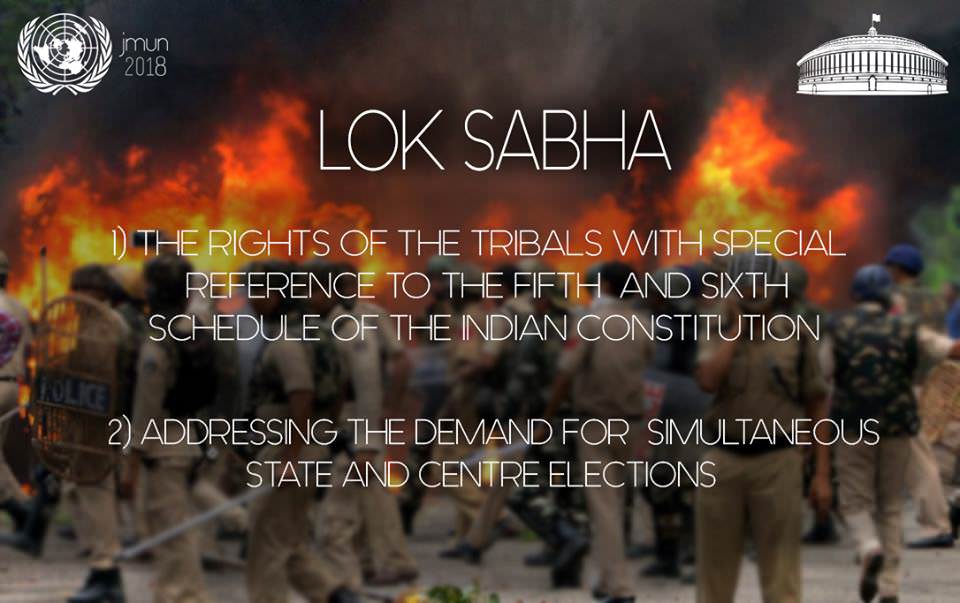
"Ours is a battle. Not for wealth, nor for power. Ours is a battle for freedom, for reclamation of human personality."
-Dr B.R. Ambedkar, the Republic of India’s first Law Minister.
Lok Sabha, The House of The People.
The PLGA still wreaks havoc in the country; our jawans still die at their hands. The tribes of North East India still form armed insurgent sects to challenge the regime, the Gorkhas still demand for their separate piece of the pie, and the Nagas are still running out of land to live in. All because a particular group of people still do not deem it necessary to recognize tribal people as human beings, and do not give them their rights.
For a country to progress and reach its optimum potential, equality has to be ensured. As the largest democratic nation in the world, India has to uphold equality-- one of the pillars of a successful democracy. It has to uphold it without any restrictions, partiality or second thought. It has to be upheld for both the rich and the poor, the powerful and the weak, the urbans and the tribals.
Hence, we present before you the agenda of the committee:
"The Rights of the tribals with special reference to the Fifth and Sixth schedule of the Indian Constitution”
So, get ready for the arduous deliberations, the throat parching speeches and the oral warfare. Get ready for word vomits and hung parliaments, for portfolio quips and personal attacks. We believe that once the delegates are in the committee room, they embody our politicians in every sense (and we do mean “every” sense).
But wait, there's more.
At JMUN, we don't believe in holding back on anything. Be it our hospitality or our committees, we go all in. So, in order to make the scope of this committee a bit wider, and a whole lot more interesting, this year’s Lok Sabha will have a dual agenda.
The “Indian” views on simultaneous elections at the centre and state level, of all matters, have been controversial, to say the least. As the current Majority Party pitches its feasibility, the Opposition Party highlights its impracticality, and neither side is willing to see the other unstoppable force, meet immovable object.
Thus, the second agenda that this committee shall be discussing is:
“Addressing the demand for Simultaneous State and Centre Elections”
The Central Election Commission’s assurance on October 5, 2017 that the Modi Government would be able to hold simultaneous elections unbalanced the equilibrium that this argument existed in. Along with this declaration was a long list of reasons, describing how the current system of frequent elections were disrupting and the simultaneous elections were better.
On the other hand, the opposition claims that this form of election curtails the fundamental rights of the voters. Not only will simultaneous elections cause security concerns, they say, but be even more hindering than frequent elections. In lieu of the truth, it seems that both sides are trying to brush off opinions as facts.
True democracy, as they say, is born out of conflict. If there is anything that these difference in opinions prove, it’s that democratic conversation is much required on such heated topics. Now, it will be upto the members of the Lok Sabha, representatives ‘of the people’, elected ‘by the people’, to decide if their actions are truly ‘for the people.’
Stuck amidst the dilemma of political idealism and implementary realism, the House of People must decide the extent of democracy they are willing to sacrifice for ‘the greater good.’
The Secretariat
UNITED NATIONS GENERAL ASSEMBLY PLENARY
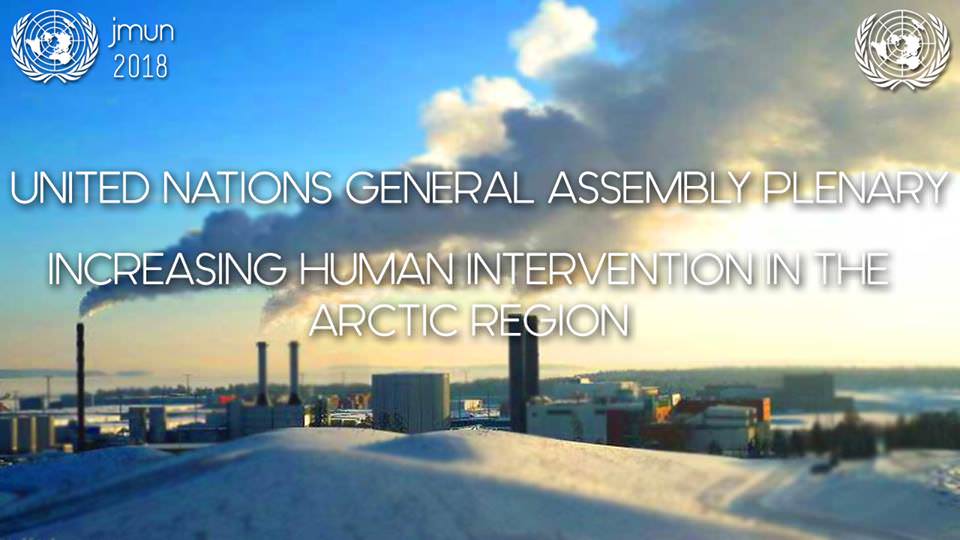
“The most important thing for people to know about the governance of Arctic is that we have a chance now to maintain the integrity of the system or to lose it. To lose it means that we will dismember the vital systems that make the Arctic work. It’s not just a cost to the people who live there. It’s a cost to all people everywhere.”
-Sylvia Earle
The General Assembly is one of the six main organs of the United Nations. It is the only organ in which all the member nations have equal representation and hence acts as the primary legislative organ of the United Nations.
The agenda for the 73rd plenary session of the United Nations General Assembly is:
“Increasing human intervention in the Arctic Region”
With the rapid melting of ice in the Arctic region, the long-isolated region is becoming a more accessible zone for commercial fishing, fresh water, minerals, coal, iron, copper, oil, gas, and shipping. Thus, the region is increasingly catching the world powers’ attention. The constant change in the climate and the increasing accessibility to the region would make the extraction of oil and gas from the region much easier. Estimations from different sources reveal that the region holds oil reserves of upto 13% of the global undiscovered oil; upto 30% of natural gas, and also other precious metals. Such speculations and increased accessibility has given rise to numerous disputes among the nation states.
Even more important is the fact that now it is our moral obligation, as the most evolved species, to protect this natural heritage. Therefore, we believe that this agenda will surely make your creativity and thought process to work faster rather than ‘freezing’ in time.
See you in the committee!
The Secretariat
UNITED NATIONS HUMAN RIGHTS COUNCIL
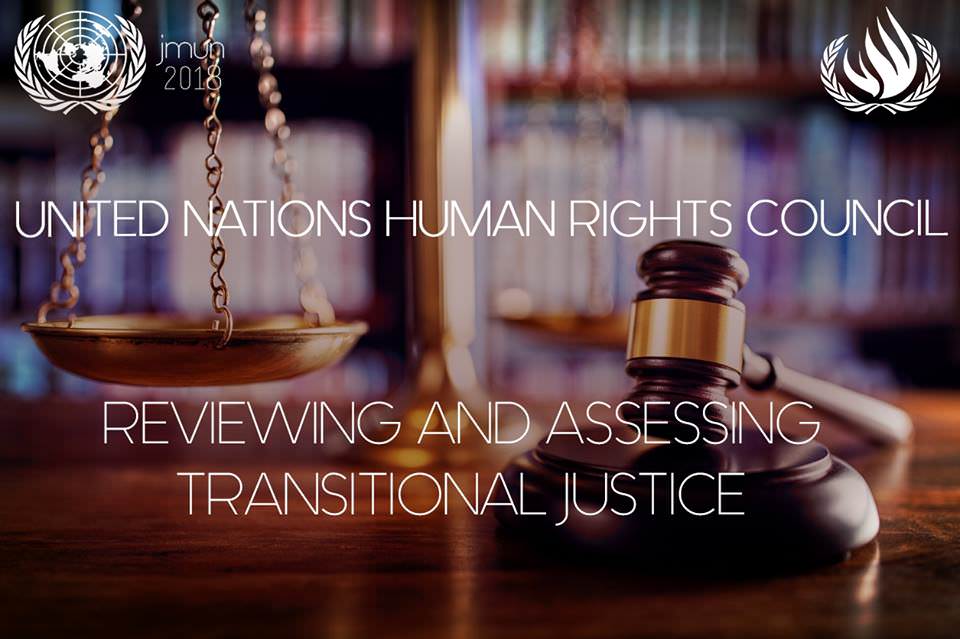
“Human rights are not a privilege granted by the few. They are a liberty, entitled to all, and human rights, by definition, include the rights of all humans: those in the dawn of life, the dusk of life, or the shadows of life. “
-Kay Granger
The Human Rights Council is an intergovernmental body within the United Nations system responsible for strengthening the promotion and protection of human rights around the globe and for addressing situations of human rights violations and make recommendations on them. Simply put, it establishes, on a moral level, what we essentially are.
Human beings draw strength, then, from “being”, from existing, from belief in meaning. On a fundamental level, we ‘are’ because we care. We care about our fellow humans. We care about freedom, about our will, about our worth, about our rights. We separate right from wrong, unambiguously and absolutely. But now, it is time to address a situation in which what is just isn’t nearly as black and white.
Thus, the agenda for the 37th session of United Nations Human Rights Council is: ‘Reviewing and Assessing Transitional Justice’.
Transitional justice refers to the ways countries emerging from periods of conflict and repression address large scale systematic human rights violations. Oftentimes, these are so numerous and so serious that the normal justice system will not be able to provide an adequate response.
Transitional justice is essential for societies to ‘transition’ from untenable conflict to sustainable peace, from severe abuses to human respect, from lawlessness to the rule of law. It is rooted in accountability and redress for the victims. It recognizes their dignity, their worth, their esteem, and tries to give back to them their faith in humanity. Ignoring massive abuses is an easy way out, but it destroys the values on which any decent society can be built.
Transitional justice answers pleas often left unheard. By putting victims and their dignity first, it signals the way forward for a renewed commitment to make sure ordinary citizens are safe in their own countries – from their fellow citizens and from the authorities. Transitional Justice creates a sustainable development, pathway to the future we want for all. It offers a framework to generate economic growth from a period of depression, social justice from a period of social unrest. With heart, heed, and humanity, the committee must help post-conflict countries come to terms with their past and settle the terms for their future.
See you in the committee!
The Secretariat
UNITED NATIONS CONFERENCE FOR HUMAN ENVIRONMENT
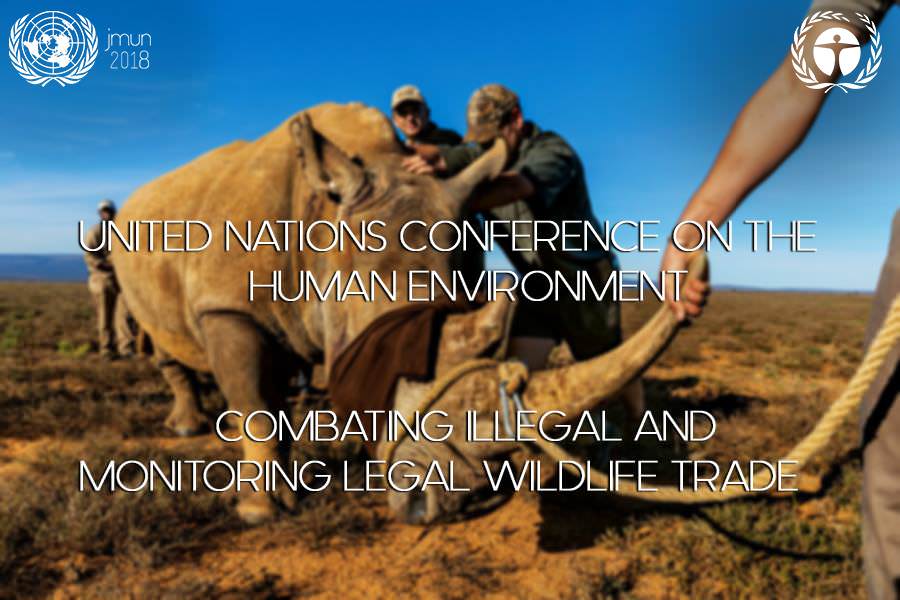
“We have a responsibility toward the other life-forms of our planet whose continued existence is threatened by the thoughtless behavior of our own human species. We have an environmental responsibility – for if there is no God, then, obviously, it is up to us to put things right.”
-Jane Goodall, UN Messenger Of Peace
The United Nations Conference on Human Environment first convened in Stockholm, Sweden in 1972 to discuss human impact on the environment. The concepts and plans developed by the Stockholm Conference have shaped every international conference and treaty on the environment over the last 35 years. In 2018, after nearly four decades, the conference has been called again.
In 2006, 36 reported rhinos were killed; in 2016, 1215 deaths were chronicled. The IUCN Red List published in 1986 had a hundred and twenty five pages; the list published in 2016 has around two thousand. Between 1970 and 2016, the living planet indexes of terrestrial, freshwater and marine species have declined by 38%, 81% and 36% respectively. Nature is dying, suffocating as its species are driven, one-by-one, to hopeless extinction.
In other news, poaching numbers are at an all-time high.
Thus, the agenda for the 2nd session of the United Nations Conference on the Human Environment is: ‘Monitoring Legal and Combating Illegal Wildlife Trade.’
Human eyesight is said to be one of the best on the planet; yet, we’re perhaps the blindest of all. Elephant populations today are less than five percent of what they used to be in the early 20th century, but countries are still pushing for the international legalisation of ivory trade. We equate ‘humanity’ to kindness and compassion. How easily, then, do we fail to be human? How long can we keep convincing ourselves that the red on our hands is not blood?
Right and wrong, however, depends not on the action but on the intent. While animals are transported from one country to another for illicit sales, they are also relocated for maintaining ecological balance. Recently, this practise has been used to the aid of environmentally damaged areas. Laws already in place are unable to both support and hinder wildlife trade in different situations.
Is it better to increase the restrictions on trade, and allow the collapsing ecosystems to suffer? Or is it kinder to make the laws a little more lax, to save the ecosystems, but also to provide further impetus to illegal trade loopholes? Thus, it falls upon the shoulders of this conference to universally decide where it draws the line. Beware, delegates, for the fate of the environment, and consequently, the world, may lie in your hands.
The Secretariat
THE GLOBAL PRESS SUMMIT

"No government ought to be without censors; and where the press is free no one ever will."
-Thomas Jefferson, 1972.
The media today stands in a quandary and a swamp of despotic rulers, the monopoly or the restrictions of the governments. It is for a reason, rightly stated, that the media, being the fourth pillar of the state, destroys the chasm between the government and the people.
But to do this, it ought not to be a government propagandist or a slave to monopoly. The sanity in the world has to be re-established. The tampering of thoughts needs to cease, once and for all, to provide lubrication for the current world order to settle.
The G.P.S. is an International Press committee. The committee is different from the traditional Press Corps, and will work in collaboration with the various departments of the Press-- the reporting, photography, videography and caricature departments-- to provide as real a simulation as possible.
The G.P.S. is a specialized and constant crisis committee. It involves both the actual writing of news and articles and the in-committee sessions that simulate the real-world media. The committee shall involve the introduction of real world hypothetical crises, and will partly follow the UNA-USA Rules of Procedures for Model United Nations.
Global affairs play a major role in our lives today and it is the duty of the Press to serve it, unbiasedly, to the readers. This ideal shall be the motive of the GPS. The committee shall uplift the right of freedom of writing and expression, which is by far the most important tool of a prolific writer. The committee involves the creation of informative reports along with heated debates over various international issues that should not miss the Press Radar at the Jaipuria Model United Nations 2018.
The G.P.S. has a media department which shall comprise of:
- Photographers
- Videographers
- Caricaturists
This year's conference shall witness the inclusion of videographers and caricaturists as an extremely vital organ of the Global Press Summit. The decided activities, press conferences and filming of the various committee sessions shall provide a real life simulation to the mass communication domain in the world today. The camera, the brush, and the pen each play a major part in this committee and shall remain interdependent throughout the conference.
Thus, with this, we present to you The Global Press Summit, a completely new concept for the creation of better and greater involvement in the world media today along with the understanding of the mechanisms of how the information flows, with or without manipulation.
Let us defeat their swords with our pens. Let us make this happen.
The Secretariat

